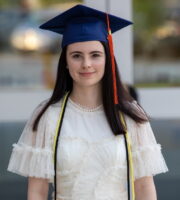
‘A lot of people assume that men can’t do pole [or that] it’s a woman-only sport,’ student said
A pole dancing club at Cornell University funded partially by student fees is working to break barriers and address what its leaders describe as misconceptions and stereotypes about the activity.
To that end, the Cornell student group called the Pole Posse recently hosted workshops for trans, non-binary and plus-size dancers, the Cornell Sun reported. Pole Posse did not respond to requests for comment from The College Fix.
“People think pole is [for] a very narrow group of people. A lot of people assume that men can’t do pole [or that] it’s a woman-only sport. No, that’s not true,” the group’s social chair told the student newspaper.
“We do a lot of these different kinds of events in the hope of being able to expand and show people that pole is not just this one thing. Anyone can do pole, and anyone can enjoy pole.”
The group recently hosted a showcase Dec. 7 called “Pride, Prejudice and Pole” inside a venerable campus ballroom. The group described it online as a “classics literature themed pole dancing showcase” funded by the Student Activities Funding Commission.
The Cornell Sun article also highlighted Pole Posse’s commitment to “honor the multitudes of expressions within pole dancing” through diversity initiatives. “We do not tolerate body shaming, ability shaming, or gender discrimination,” it states on Instagram. Shaving is also not required, “body hair is fine,” the group states.
Alongside videos of scantily dressed students pole dancing, the club’s Instagram profile also promotes “Demon Twink Pole and Drag Bingo” and a series of other drag performances at a downtown Ithaca bar.
The club’s vice president told the Sun: “People with less knowledge immediately associate [pole dancing] with sex work and stripping, which is understandable because its roots are in stripping and sex work.”
The club is an official student organization registered with Cornell and assisted by faculty advisor Anne Bracy, a senior lecturer for Cornell Engineering.
Cornell University’s media relations division and Professor Bracy did not respond to multiple requests for comment from The College Fix.
A 2019 Campus Reform story also confirmed that “the club is funded by student fees” through “the Student Activities Funding Commission;” funding contributes to free weekly pole dancing classes from “experienced instructors.”
The report also noted Pole Posse’s 2019 annual student showcase contributed to Planned Parenthood. Last year, the group donated to the Women for Women International’s Gaza Winter Relief Fund, the Sun reported.
A 2019 Cornell Sun article about the event states that Pole Posse’s goal was “to support sexual health care in ‘Cornell’s own backyard.’”
The Sun quoted a participating male student as admitting he “originally was nervous about clambering about on a pole in minimal clothing while in front of strangers.”
Pole Posse’s Cornell CampusGroups website officially associated with the university states that “Sex workers and other workers in ‘’informal’ or ‘alternative’ professions were practicing and cultivating pole dancing long before it become [sic] more mainstream.”
Cornell is not the only elite university promoting pole dancing to students. In 2019, an official UCLA event hosted by UCLA Housing offered a “Sexploration Pole Art Class,” according to Campus Reform.
However, Cornell’s Pole Posse, founded in 2005, appears to have been the first Ivy League university pole dancing club.
MORE: Topless ‘nun’ performs sexualized burlesque at Dartmouth drag show
Like The College Fix on Facebook / Follow us on Twitter






Please join the conversation about our stories on Facebook, Twitter, Instagram, Reddit, MeWe, Rumble, Gab, Minds and Gettr.